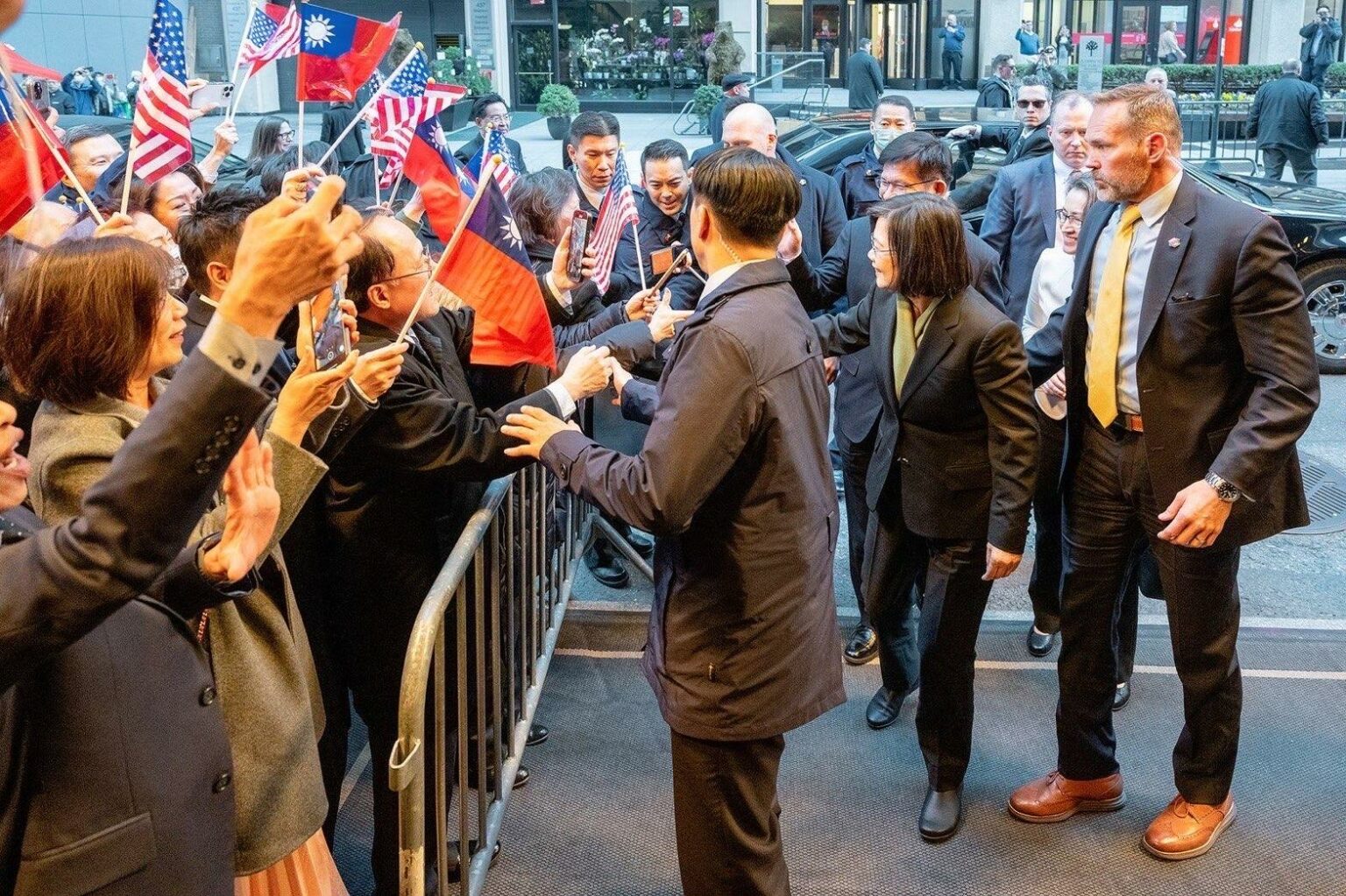In New York City on Wednesday evening Taiwan’s President Tsai Ing-wen asserted that there are global security interests in keeping her country self-ruled.
In a speech Wednesday night to fellow Taiwanese in New York, Tsai said, “The safer Taiwan is, the safer the world will be,” and she thanked the U.S. for its security assistance while also urging Taiwanese unity.
Tensions between the U.S. and China have increased in recent months, in part over diplomatic disputes surrounding Taiwan’s independence.
China claims the self-governing island of Taiwan as its own territory, and has in recent months been saber-rattling against its self-governing neighbor, just 100 miles off the Chinese coast.
The U.S., meanwhile, announced plans in February to increase its military deployment to Taiwan by between 100 and 200 troops in coming months.
The United States broke off official ties with Taiwan in 1979, when it formally established diplomatic relations with China. Even so, the U.S. remains Taiwan’s chief source of military hardware and cooperation. U.S. law requires Washington to treat all threats to Taiwan as matters of “grave concern.”
President Tsai, meanwhile, is on a multi-nation tour that will include several Central American countries and then a stop back in the U.S., in Los Angeles, this coming Wednesday, where she is reported to be planning to meet with House Speaker Kevin McCarthy (R-CA).
China has threatened retaliation if that meeting occurs, calling it a “further provocation that seriously violates the one-China principle.”
Analysts say that China has been watching and waiting to see how Russia fares in its invasion of Ukraine before going forth with an assault against Taiwan.
Over the summer China undertook military exercises that blockaded Taiwan’s major ports, which Taiwan’s Foreign Minister asserted China was using as a “game plan” for invasion. Those Chinese military exercises came a week after a visit to Taiwan by McCarthy’s predecessor, then-Speaker Nancy Pelosi (D-CA).
On Thursday afternoon, while Tsai was still in New York, Pentagon Press Secretary Air Force Brig. Gen. Pat Ryder addressed a reporter’s question about whether there had been any new threats or activity from China amid the Taiwanese President’s visit.
“Without really getting into intelligence, I would say we have not seen anything of particular concern or out of the ordinary at this stage,” he said during his daily briefing. We continue to monitor, of course.”
Neither Taiwan nor McCarthy has publicly confirmed any in-person meeting during Tsai’s travel. However, under his Speakership the House has created a Committee on China to investigate Chinese military threats, economic competitiveness and human rights. It held its first meeting about a month ago.


